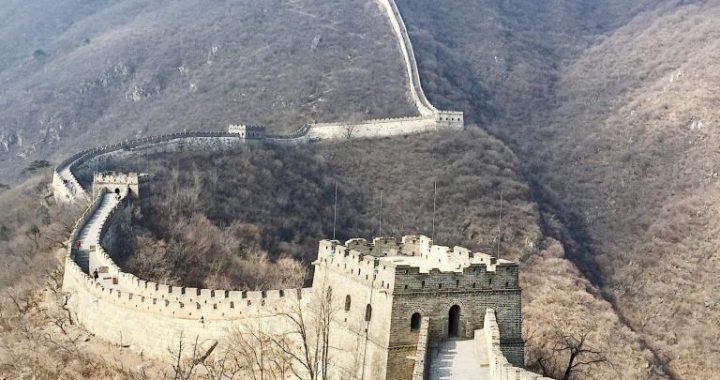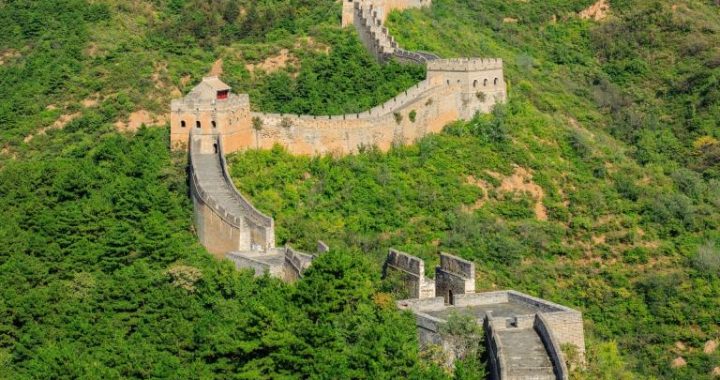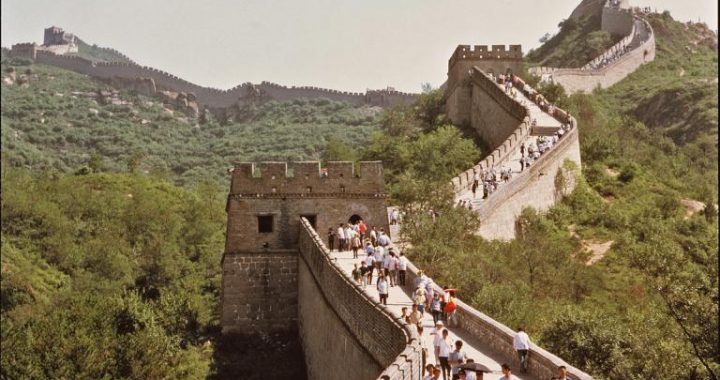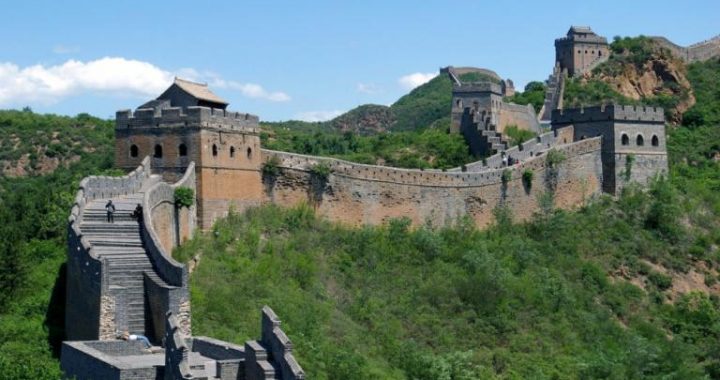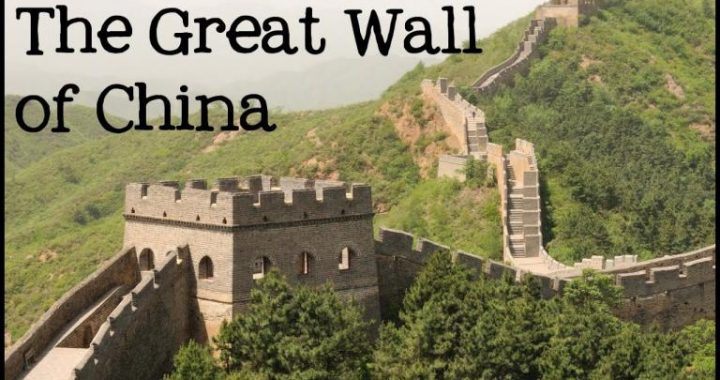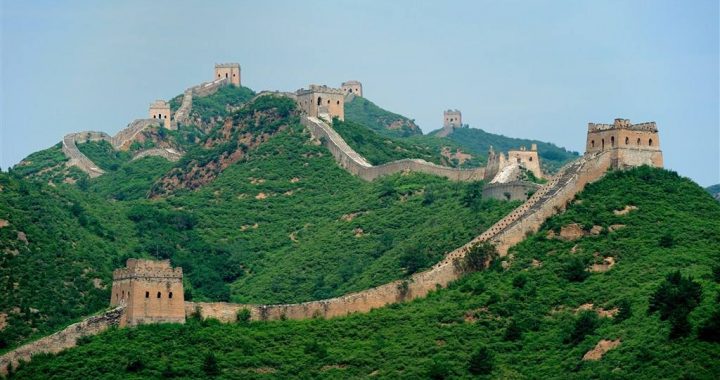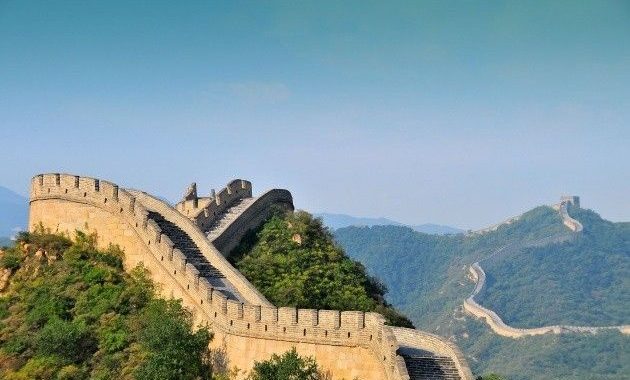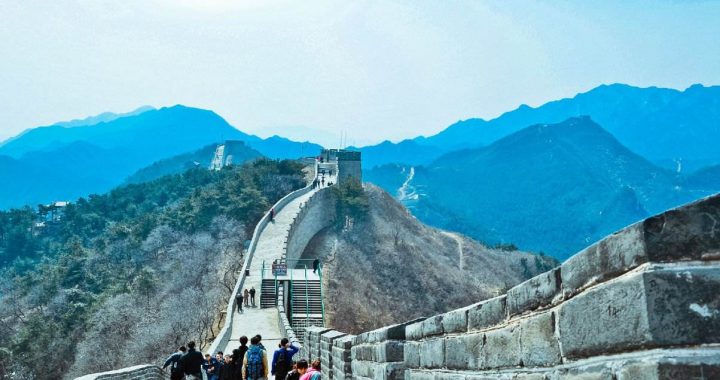The Heroes under the Great Wall:Wei Qing and Huo Qubing
6 min readThe life of Wei Qing could be described with the word”“legendary”.His mother was a maid in the residence of Princess Pingyang(the sister ofEmperor Wu),and gave birth to Wei Qing after she committed adultery with an official in Pingyang County,Zheng Ji.When Wei Qing was young he was sent to his father’s home,but he was looked down upon and humiliated by the Zhengs because of his birth.After he grew a little older,Wei Qing didn’t want to endure the humiliation in Zheng’s family any longer and returned to live with his mother who remained in an inferior position-working as a stable slave in the residence of Princess Pingyang.There used to be somebody foretold that he would be an official and granted a title by the emperor in the future,but Wei Qing smiled bitterly and said,“I’m only the son of a slave,and I would be satisfied if I would not be lashed or scolded in the future.How dare I hold the wild wishes of being granted a title?”

However, later the sister of Wei Qing, Wei Zifu was chosen by Emperor Wu as a concubine, and Wei Qing was also brought into the palace to work. Emperor Wu soon discovered the military talents of Wei Qing, thus his military career started. In the 5th year of Yuanguang reign(130BC), Emperor Wu appointed Wei Qing as General of Chariots and commanded him to lead ten thousand cavalries to go on an expedition to Xiongnu with other generals. From then on, Wei Qing set foot on his journey of fighting on the battlefield to serve the country. Later, his sister Wei Zifu gave birth to the crown prince and was established as the queen. Consequently, Wei Qing also won more trust from Emperor Wu, and was put in more important positions. In the second year of Yuanshuoreign(127 BC), Xiongnumassed many troops to attack Shanggu and Yuyang. Emperor Wu decided to shun the main army of Xiongnu and attack its weak areas. Therefore he sent Wei Qing to lead the army to attack the Henan area(the Hetao area) which was occupied by Xiongnu for a long time. Wei Qing led 40,000 troops and started from Yunzhong. He adopted the outflanking tactics, arriving at the rear of the Xiongnu troops, and occupied Gaoque quickly; then he led the crack cavalries galloping southward to Longxi, enveloping the Xiongnu troops of Prince Baiyang and Prince Loufan.
The Xiongnu troops found that they were in an unfavorable situation and fled away in a flurry. The Han troops captured thousands of enemies and gained more than a million livestock, controlling the Hetao area completely.
Wei Qing made great achievement and was granted the title of Marquis Changping.
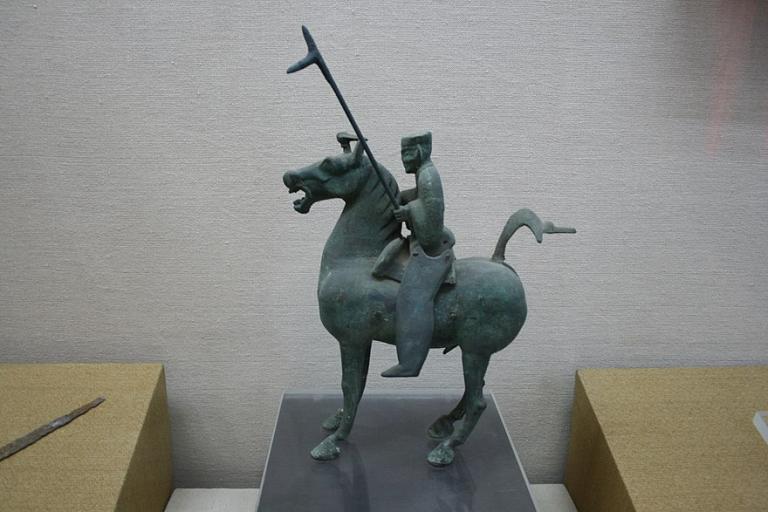
In the spring of the 5th year of Yuanshuo reign(124 BC), Emperor Wu ordered Wei Qing to lead 30,000 cavalries, starting from Gaoque, on an expedition to Xiongnu.
Wei Qing led his army to make a forced march for 600-700 li and besieged the tent of Prince Youxian at night, while Prince Youxian was drinking in his tent with beautiful concubine in his arm, somewhat drunk. Suddenly he heard the chaos of battle outside the tent and, frightened out of his wits, Prince Youxian only brought several hundred cavalries and broke through a tight encirclement, fleeing to the north. The Han troops captured over ten tetrarchs of Prince Youxian, more than 15,000 people and millions of livestock in this battle, getting a complete victory. Emperor Wu was overjoyed upon the arrival of this message, and sent an emissary to the army to confer the rank of Great General to Wei Qing.
Wei Qing, the son of a slave, now became Great General, and the officials inthe imperial court all flattered him. At that time, Princess Pingyang was· The tomb of Wei Qing widowed and was going to find a husband among the marquis. Many people said thatGreat General Wei Qing was a quite suitable person, and Emperor Wu permitted their marriage immediately. In this way, Wei Qing and Emperor Wu had a much closer relationship, thus he won even more trust from the emperor.
Nevertheless, Wei Qing was still very modest and benevo-lent; he respected the worthy people and never oppressed the other people with his power and influence.
In all his life, Wei Qing fought wars with Xiongnu for 7 times, daring employ military forces to the rear areas of the enemies, and was good at mounting both a surprise attack and a normal attack; as a general, he was strict in executing orders and observing disciplines, and he also shared comforts and hardships with the soldiers; in battles he usually gallop at the head and the officers and soldiers wereall willing to serve for him. Wei Qing died from disease in the first year of Yuanfeng reign(105 BC) at last.
Huo Qubing was the nephew of Great General Wei Qing, and was selected to be an imperial attendant as theson of the queen’s sister at the age of only 18. Since he loved riding and shooting arrows, he went out for a battle in the 6th year of Yuanshuo reign (123 BC) followingGreat General Wei Qing. He led 800 hussars to attack Xiongnu, killing 2,000 Xiongnu people and was granted the title of Marquis Guanjun. In the second year of Yuanshou reign(121 BC) he was promoted to be General of theFlying Cavalry. He led the army to attack Xiongnu for 6 times, among which he made very impressive battle achievement twice. In the second year of Yuanshou reign, Huo Qubing, now the General of the Flying Cavalry, led ten thousand cavalries from Longxi area, getting across Yanzhi Mountain (in the southeast of the present-day Gansu province) and galloping to attack Xiongnu for a thou-sand li, killing almost 9,000 Xiongnu people and seizing the bronze figure of Buddha Prince Xiutu which was used to offer sacrifices to the heaven. In the summer of the same year, the army went out of the Longxi area and Longbei area for 2,000 liagain, crossed Juyan Lake and marched into Qilian Mountain, capturing and killing Xiongnu troops for over 30,000. This battle did give a heavy blow to the right branch of Xiongnu, resulting in the split inside Xiongnu. Then Prince Hunxie killed Prince Xiutu and led over 40,000 people to the Han dynasty and pledged allegiance. The Han dynasty allocated these Xiongnu people respectively in the clear area out of the frontier fortress, and set 5 dependent states according to the customs of the Xiongnu people, and later set up the four prefectures of Wuwei, Zhangye, Jiuquan and Dunhuang in the Hexi Corridor area, which facilitated the direct communication between the central areas and the Western Region, and played an important role in mounting of the Western Han force and inhibition of the Xiongnu force.
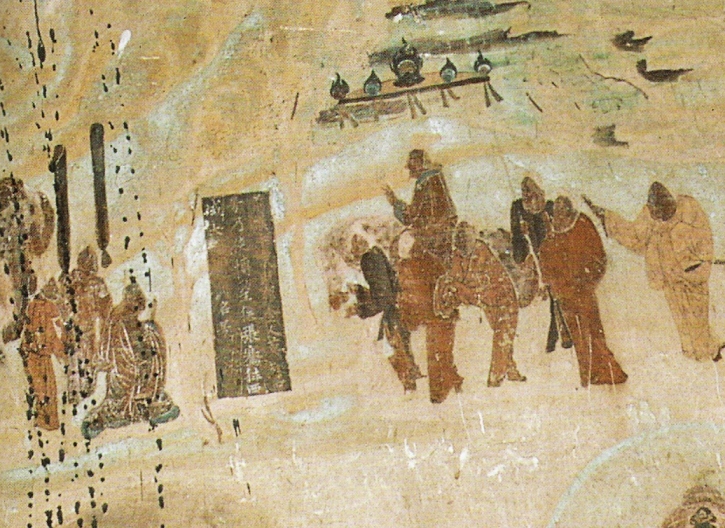
In employing military forces, Huo Qubing emphasized the practical situation and never abided by obstinately the military tactics. Emperor Wu used to ask him to learn military tactics, but Huo said,”Employing militaryforces must be based on the factual conditions, and only learning the military tactics is not enough.”When Emperor Wu granted him a mansion, Huo said,”once the Xiongnu was not annihilated,I have no home.”When he was fighting in the war, he was intrepid and always galloping in the head, and he usually led a small army to act as the avant-courier of the main army. However, since Huo Qubing was grown up in a rich family and later living in the palace, he capitalized on his noble identity and couldn’t show solicitude for his soldiers. When the army was out of the Great Wall, Emperor Wu used to reward him with over ten wagons of foods and drinks, and when the troops withdrew, he abandoned large amounts of delicious food, but the officials and soldiers in the army looked pale because of hunger.
In all his life Huo Qubing led the army to attack Xiongnu formally for 4 times, which all returned with great victory. He annihilated 110,000 enemies, made 40,000 enemies surrender and enlarged the territory of the Han Dynasty (206 BC-220 AD) greatly. His battle achievement was even greater than his uncle Wei Qing. After achieving so much, Huo Qubing also mounted to the zenith of his lifeGreat Minister of War and General of the Flying Cavalry. However, only two years later, in the 6th year ofYuanshou reign (117 BC), Huo Qubing, died only at the age of 24.
